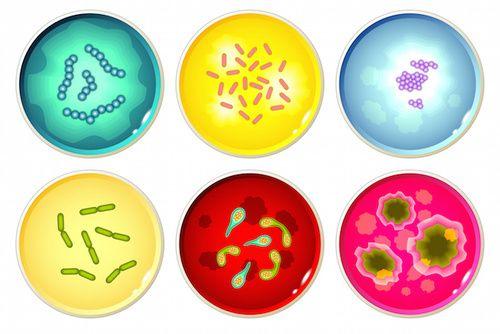, Naturopath
Probiotics (which literally means for life) are all of those microorganisms which, when ingested in sufficient quantities, are able to exercise beneficial functions for the health of the intestine and the organism in general.
> 1. What are probiotics
> 3. Probiotic food supplements
> 4. Natural probiotic supplements

What are probiotics
Probiotics are essentially represented by lactic bacteria, which are so named as they are characterized by a particular fermentative metabolism that leads to the final production of some organic acids of which, the main (and always present), is lactic acid.
Inside the human intestine there are many microorganisms that make up the intestinal microbial flora. Among the most important are the Lactobacillus acidophilus and Bifidobacterium bifidum.
Properties of probiotics
Probiotics they are bacteria already normally present in our intestine. They are able to reproduce in the gastrointestinal mucosa and survive despite the azidity of the stomach and the presence of bile. Our body tolerates them perfectly, indeed, it needs it to maintain it correct composition of microflora.
Probiotics contribute to the balance of the mucosa and, consequently, of the entire immune system, have a positive effect because they regulate the movement of immune cells towards the inflammation center. Thus the probiotic bacteria protect the human organism from intolerances, allergies and autoimmune diseases.
Probiotic food supplements
There are currently a number of ways to add probiotic bacteria to the gut; there are, in fact, many food supplements with a high concentration of lactic bacteria.
Probiotics must be contained in capsules resistant to stomach acid so that bacteria can cross it and reach the intestine unharmed. Colonization then takes place in the intestine.
The probiotic bacteria in capsules are in freeze-dried form. In this case, therefore, the probiotics are first frozen, then sublimated (with ice removal). In this way, a 100% natural bacterial powder is obtained, where both the morphological and biochemical characteristics of the probiotics are kept unaltered and can be kept even for a few years.
Once in the intestine, when the capsule in which they are contained dissolves, the probiotics draw moisture from the outside and can thus multiply.
The best forms of nutrition for probiotics are the so-called prebiotics, which, in the form of high-quality food supplements, are already included in the capsules.
What are probiotic foods?

Natural probiotic supplements
Probiotics they are found naturally in some foods.
First among all, fermented food which in itself can be considered a natural probiotic supplement.
Fermented foods are those left to age for days or weeks so that they are then naturally colonized by good bacteria and yeasts. In this way, by undergoing a kind of pre-digestion, the nutrients are assimilated by the human body more easily.
These bacteria are beneficial and help restore the balance of the intestinal flora. One of the strains that has excellent properties is that of Lactobacillus which release lactic acid during fermentation. Lactic probiotic bacteria (lactobacillus and bifidus) settle on the walls of the colon and produce lactic acid and several other organic acids.
The most commonly used lactic bacteria such as probiotici sono Streptococcus thermophilus, bifidobacteria e lactobacilli. They can be found in whole yogurt, ricotta with live lactic cultures, sauerkraut and fermented gherkins.
Discover the properties of white yogurt, rich in probiotics
Other articles on probiotics:
> Probiotics: what they are and what they are for
> Live lactic ferments: what they are for and when to take them
> How to take care of the intestinal bacterial flora


























